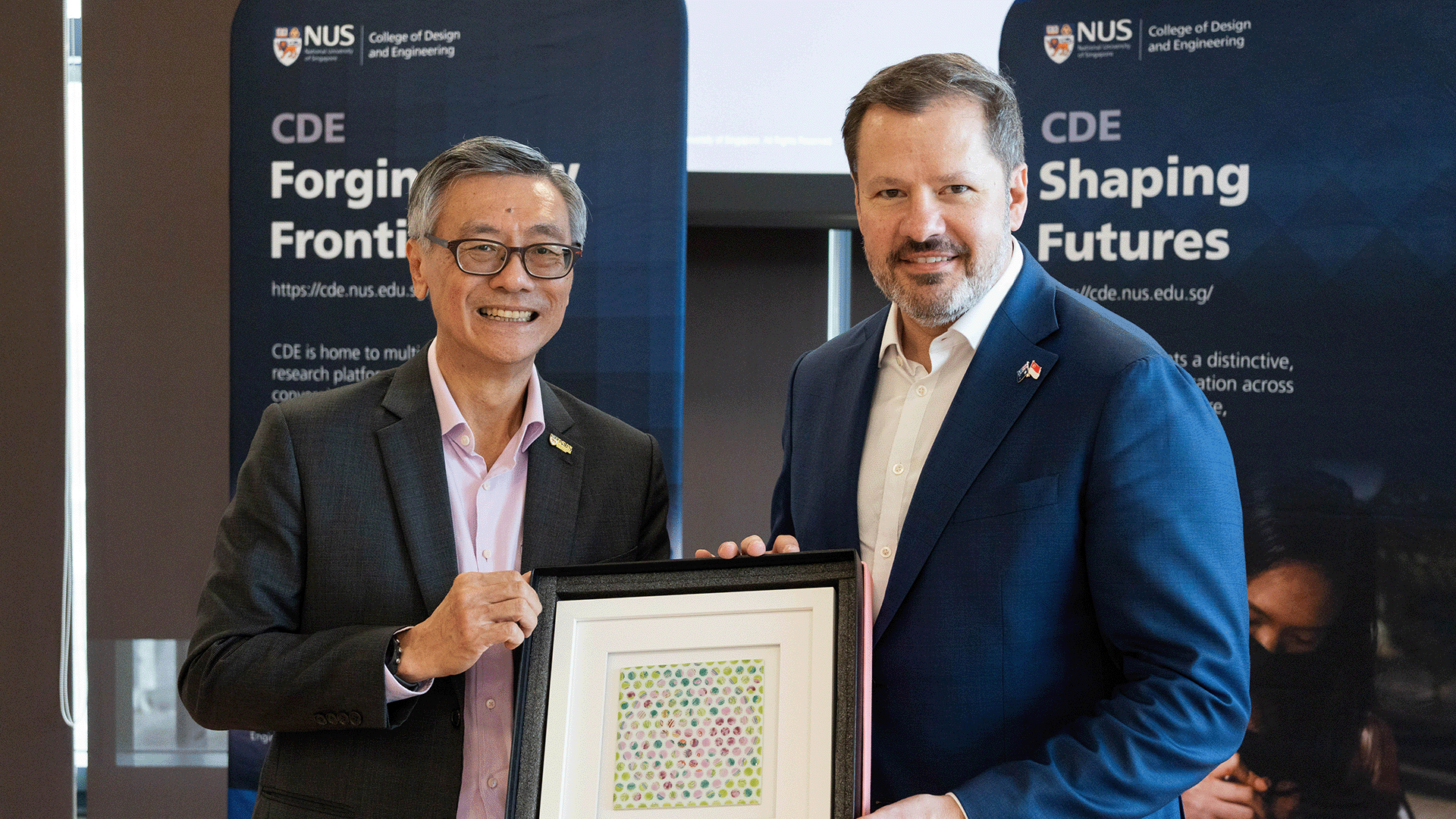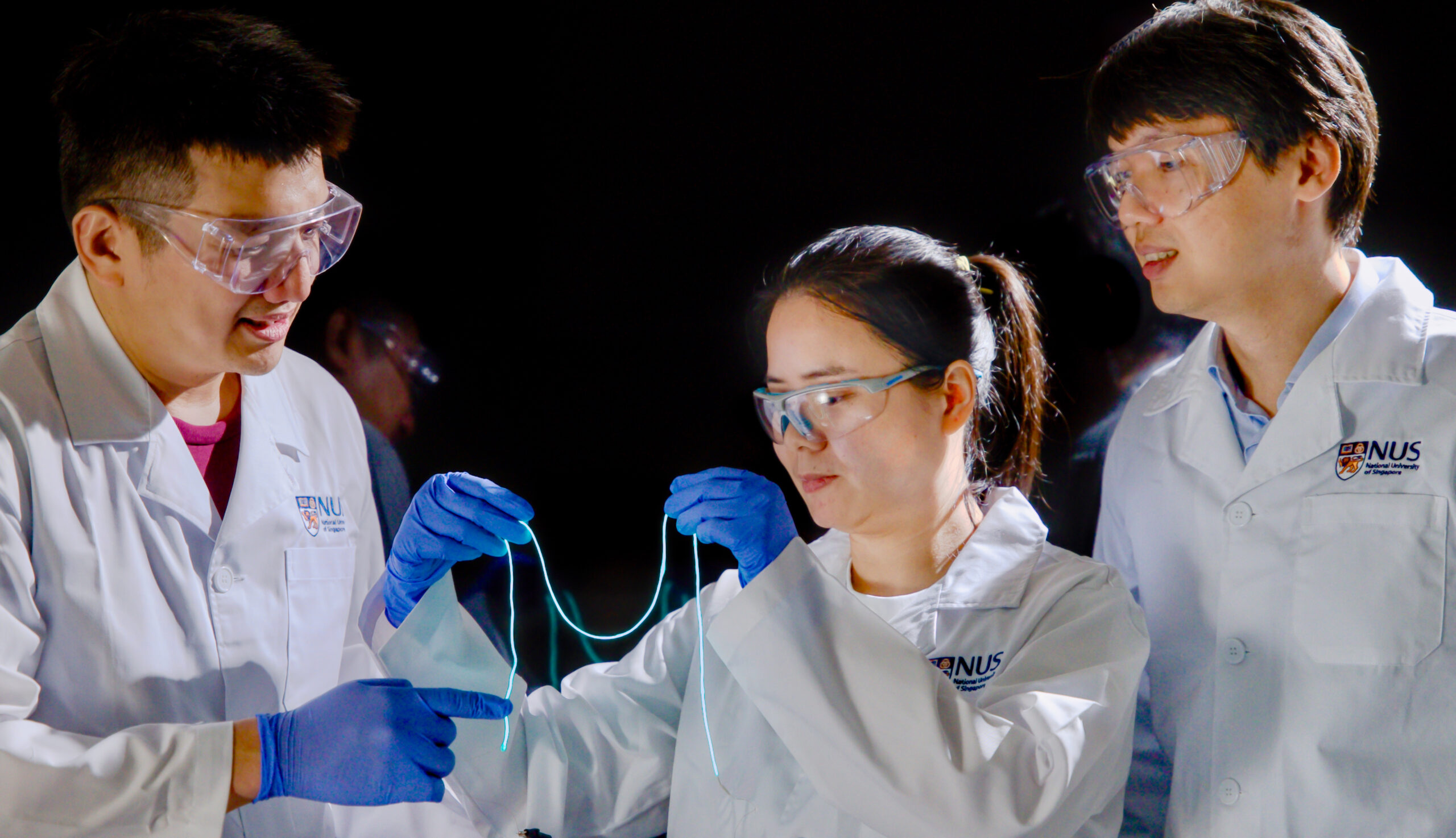RESEARCH IMPACT & COLLABORATIONS
Australian grant backs hydrogen from seawater research

A groundbreaking international project involving CDE researchers for sustainable hydrogen production using sunlight and seawater is one of the first projects to win a grant under a new Australian government-backed science and technology fund.
The announcement was made during a visit to CDE on 16 December by the Hon Ed Husic MP, Australia’s Minister for Industry and Science.
The project, “Solar Thermal-Plasmonic Seawater Splitting for Hydrogen Production”, is led by Professor Zongyou Yin from the Research School of Chemistry at the Australian National University, working with CDE faculty Associate Professor Sibudjing Kawi (Chemical and Biomolecular Engineering) and Associate Professor Michel Bosman (Materials Science and Engineering).
"Hydrogen is a green and sustainable energy carrier with immense potential to drive sustainable energy systems and contribute to the global effort to decarbonise industries," Assoc Prof Kawi said. “This approach uses seawater, an abundant and sustainable resource, while preserving our precious limited freshwater supplies."
Read more about how this international research collaboration aims to shape the future of clean energy: https://cde.nus.edu.sg/news-detail/australian-grant-backs-hydrogen-from-seawater-research/
Architectural perception and emotional well-being
“Architecture is about more than just aesthetics—it has a profound psychological impact.”
In a recently published study, PhD student Xiucheng Liang and fellow researchers at the Urban Analytics Lab (UAL) at CDE, set out to uncover how the buildings around us affect our moods and make us feel. From glass skyscrapers, to orderly residential blocks and buildings with historic facades, the architecture we encounter daily can be a powerful force in shaping our emotions and perceptions he says.
In this video, Liang introduces some of the team’s findings, exposing the relationship between the design of building exteriors and the psychology, emotions, and mental well-being of city residents. The research provides valuable insights for urban planners and architects, suggesting ways that future cities can be not only functional but also emotionally impactful.
A smarter fibre for a brighter future

The SHINE fibre - developed by a team of researchers led by Assoc Prof Benjamin Tee (Materials Science and Engineering) - combines light emission, self-healing, and magnetic properties.
Flexible, durable, and wirelessly powered, it opens up potential exciting applications in fields such as robotics, wearable technology, and smart textiles.
Read more about this innovative and versatile new material: https://cde.nus.edu.sg/news-detail/shine-self-healing-light-emitting-fibre/
Nanotech solutions for the future of farming
From nanosensors that detect plant stress to nanocarriers delivering nutrients with precision, their research is paving the way for sustainable farming to address the challenges of a changing global climate and growing population.
Watch the video to see how Asst Prof Lew’s research is helping to shape the future of food security.
Aerogel to efficiently extract water from the air

Shortages of freshwater are a growing global challenge. Tapping into an estimated 13,000 trillion litres of water held in the Earth’s atmosphere could be a way to solve this.
At CDE, a research team led by Associate Professor Tan Swee Ching has developed an innovative aerogel that efficiently harvests water from the air, even in low-humidity conditions.
The aerogel can extract and hold water up to about 5.5 times its weight within its porous structure, releasing it when exposed to sunlight or temperatures of around 50°C.
Offering a low-energy, cost-effective way to produce clean water, the aerogel could offer a much needed solution for arid or drought-prone regions.
Read more here: https://cde.nus.edu.sg/news-detail/aerogel-to-efficiently-extract-water-from-the-air/
Major Grants Awarded
The major grants (start date in December 2024) with total project value > $1M.
| Hosting Unit | Project Title | Funding Programme (Source of Funding) |
Principal Investigator |
| ChBE; MSE | Development of Advanced Catalysts for Electrochemical Carbon Abatement | NRF Create Thematic Programme for Decarbonisation - 2024
(NRF) |
Chen Wei (Chemistry); Lu Jiong (Chemistry); Zhao Ming; Lum Yanwei; Sergey Kozlov |


